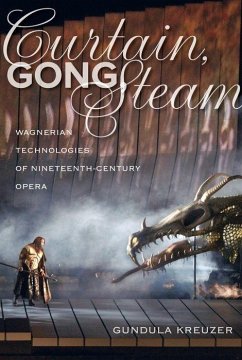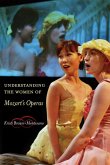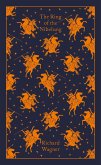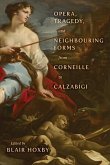In this innovative book, Gundula Kreuzer argues for the foundational role of technologies in the conception, production, and study of nineteenth-century opera. She shows how composers increasingly incorporated novel audiovisual effects in their works and how the uses and meanings of the required machineries consistently changed, sometimes still resonating in contemporary stagings, performance art, and popular culture. Focusing on devices (which she dubs Wagnerian technologies) intended to amalgamate opera's various media while veiling their mechanics, Kreuzer offers a practical counternarrative to Wagner's idealist theories of total illusionism. Curtain, Gong, Steam's multifaceted exploration of the three titular technologies repositions Wagner as catalyst more than inventor in the history of operatic production. With its broad chronological and geographical scope, this book deepens our understanding of the material and mechanical conditions of historical operatic practice as well as of individual works, both well known and obscure.








